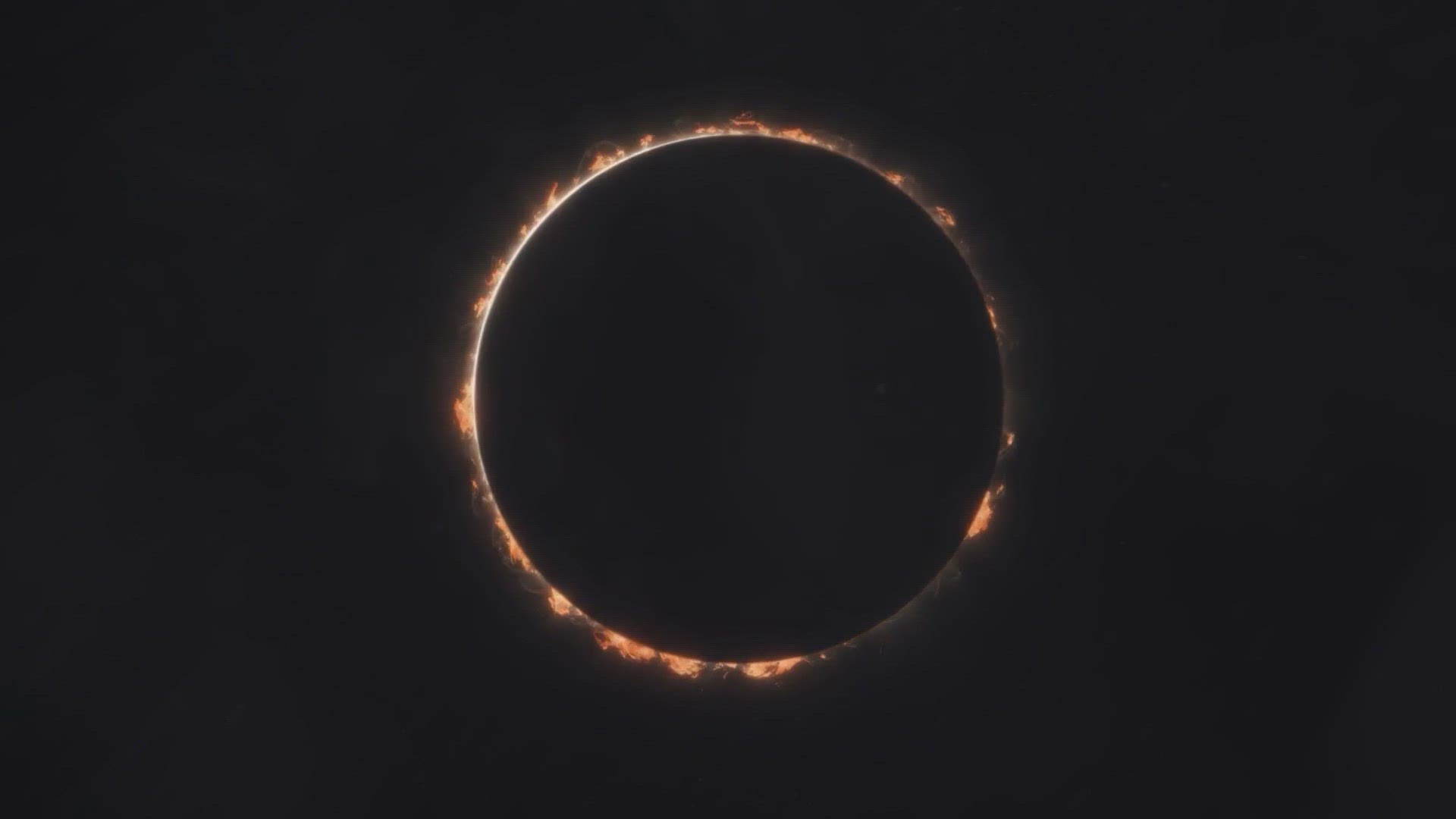DES MOINES, Iowa — A total solar eclipse will soon sweep over much of the United States, with some of Iowa's border states achieving full totality.
A lucky 115-mile-wide expanse of the United States will experience the Monday, April 8 event like never before, with the phenomenon even expected to last longer than 2017's.
Skygazers in the Hawkeye State will only ever see 86% of the sun covered by the moon — in Cedar Rapids, Des Moines and Dubuque. According to TimeandDate, the partial eclipse will begin around 12:45 p.m., peak just before 2 p.m. and welcome full brightness back at 3:15 p.m.
But don't worry: Plenty of places getting 100% totality are just a Midwestern road trip away.
Ready to hit the road? Here's where to head in if you want a little more totality in your future.
Kansas
A few hours southwest of Iowa will get you 3% more sun coverage, with parts of Kansas seeing as much as 89% of totality on Monday.
The partial solar eclipse will start at approximately 12:30 p.m., peak at 1:50 p.m. and end at 3:09 p.m., according to TimeandDate.
Illinois
Head southeast to the area around Richwoods and Carbondale, Ill., to witness actual totality.
The few minutes of 100% darkness will start in southern Illinois around 1:58 p.m. and end at 2:07 p.m.
Other cities like Chicago and Springfield will still see more than Iowa, with 90-96% of the sun covered as early as 12:45 p.m., according to TimeandDate.
Missouri
Iowa's southern neighbor will get plenty of darkness on April 8, with the path of totality crossing through the Show-Me State.
Head to Sikeston — a nearly eight-hour drive from Des Moines — to experience a 3.5-minute long total solar eclipse. Just six hours away from Des Moines, St. Louis will see 99% of the sun covered.
In most of Missouri, the eclipse will begin at 12:35 p.m. and reach maximum totality at 1:55 p.m, ending around 3:15 p.m., according to TimeandDate.
Other Iowa border states
Nebraska, South Dakota and Minnesota are all getting even less totality than Iowa. If you're interested in viewing a partial solar eclipse from any of those locales, check out the city search function below to learn more.

